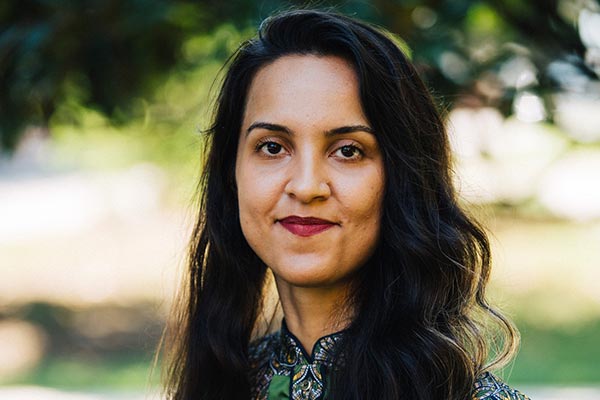Melissa Shahbandeh

"Learn, Teach, Get Inspired, and Inspire."
College: Arts and Sciences
Degree Program: Physics
Degree: Doctorate
Video Credit: Enrique Toledo, FWS Videography Intern
Why FSU?
Before I applied to FSU, I knew I wanted to do research in astrophysics/astronomy. Thus, I looked up schools that had graduate astrophysics programs matching my interests. FSU’s physics graduate program had a lot of advantages compared to other schools, including a guaranteed teaching assistantship for the duration of the PhD and the variety of the physics courses being offered. Additionally, my goal was to work on observational/experimental astrophysics, and at the time, FSU had just hired a faculty member who was an expert in astronomy/observations and who eventually became my advisor. The faculty and students I have met here at FSU, especially at the Department of Physics, have been some of the friendliest and most caring people I have ever met. Furthermore, FSU offers a lot of opportunities to the students, including career consultation, networking events, and sports clubs.
What motivated you to pursue a graduate degree?
I found that pursuing a graduate degree is the best way to learn more in-depth about the science that I was interested in. Also, in my culture, higher education is extremely encouraged and valuable. Furthermore, my career aspirations then and now require an advanced degree. I also believe graduate school not only provides you with the space and necessary tools to learn more in a specific field of study but also teaches you valuable social skills and offers great networking opportunities.
Importance and/or impact of research and work
My research focuses on supernovae. A supernova is the explosion of a star that has reached the end of its life. The reason my research is important is the fact that although we have advanced technology and science, there are still a lot of mysteries in our universe that remain unsolved. Also, supernovae are the reason we have an abundance of heavy elements on the earth; in another word, the death of a star brings “life” to other stellar objects. Studying astrophysics can eventually help us answer these questions: How did we get here? How does the universe work?
Career aspirations
Being a teacher/research assistant in graduate school showed me how wonderful it is to work with students and to conduct research in academia. Not only can I fulfill my curiosity of science, but I can also inspire younger generations. I would love to continue my research and keep teaching students in the future, which is why I will pursue a postdoc/faculty job after graduation.
Advice for anyone considering graduate school
Graduate school offers you the opportunity to grow personally, challenge yourself, network better, and be recognized. Also, depending on your career goals, you might need to pursue an advanced degree. If you are passionate about an area of study or you have goals that require higher education, I encourage you to go to graduate school.
Accomplishments during academic career
During my time here at FSU, I have learned many technical skills that helped me co-author several papers. I have also been the PI of multiple successful telescope proposals. I won the Anna Runyan award last year. Additionally, I have been leading several student organizations on FSU campus and have held many successful events throughout the years.
